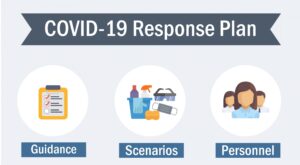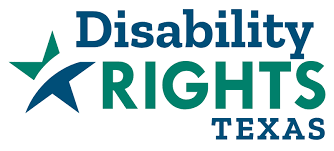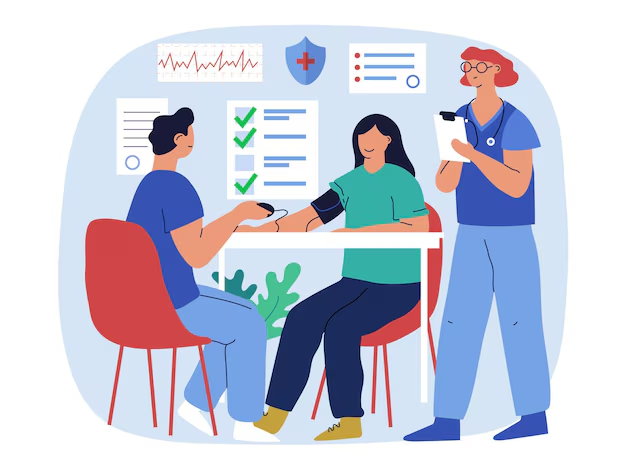October 17th, 2022
HHSC HCS Program Provider Response to COVID-19 Emergency Rule Expired Oct. 14
The emergency rule for Home and Community-based Services waiver program providers that contain the HCS Program Provider Response to COVID-19 Emergency Rule expired Oct. 14.
The following rule expired Oct. 14:
- 40 Texas Administrative Code Section 9.198 – Program Provider Response to COVID-19 Emergency Rule
HCS program providers must continue to comply with visitation requirements for essential caregivers and clergy in a disaster located in TAC Chapter 570 as well as all other applicable rules and certification principles.
See Section 9.198 below:
40 Tex. Admin. Code § 9.198
July 11th, 2022
Provider Letter 2022-13, Version 2: Petition To Suspend Essential Caregiver Visits
HHSC issues PL 2022-13, Version 2 with additional information regarding how a facility or program provider may petition HHSC to suspend in-person essential caregiver visits.
Read PL 2022-13, Version 2 here.
“A facility or program provider may petition HHSC to suspend in-person
essential caregiver visits for no more than 7 consecutive calendar days
if in-person visitation poses a serious community health risk. To
petition for a suspension of in-person essential caregiver visits, a
facility or program provider must submit a request to their Regional
Director (RD) by email. The contact information for each Regional
Director is available on the Long-term Care Regulatory Regional
Contact Numbers website. A facility or program provider may request
an extension from HHSC to suspend in-person essential caregiver
visitation beyond the original request, but HHSC may not approve an
extension that exceeds 7 days. HHSC may deny a petition to suspend
in-person essential caregiver visits if HHSC determines that in-person
essential caregiver visits does not pose a serious community health
risk.”
July 5th, 2022
Updated HCS/TxHmL COVID-19 Response Plan, FAQ Documents- June 24th
HHSC Long-term Care Regulation updated the COVID-19 Response Plan and FAQ documents on June 24. The updates remove instructions on how to ask for emergency staffing from HHSC.
Read the revised COVID-19 Response for HCS Providers (PDF).
Read the revised Updated COVID-19 FAQs for HCS and TxHmL Providers (PDF).
May 7th, 2022
Updated HCS/TxHmL COVID-19 Response Plan, FAQ Documents-May 5th
HHSC Long-term Care Regulation updated the COVID-19 Response Plan and FAQ documents on May 5. The updates remove instructions on how to ask for emergency staffing from HHSC.
Read the revised COVID-19 Response for HCS Providers (PDF).
Read the revised Updated COVID-19 FAQs for HCS and TxHmL Providers (PDF).
February 20th, 2022
Updated HCS COVID-19 Response Plan and FAQ Documents – Feb. 18
HHSC Long-term Care Regulation updated the HCS COVID-19 Response Plan and FAQ documents.
Read the revised COVID-19 Response for HCS Providers (PDF).
Read the revised Updated COVID-19 FAQs for HCS and TxHmL Providers (PDF).
Updated COVID-19 Provider Response and Visitation Emergency Rules for HCS Providers – Feb. 17
HHSC Long-Term Care Regulation published revised HCS COVID-19 Provider Response to COVID-19 and Expansion of Reopening Visitation Rules (PDF). HCS providers must now screen individuals and staff per HHSC guidance.
HHSC Long-Term Care Regulation published revised COVID-19 Expansion of Reopening Visitation Emergency Rules. They are for Intermediate Care Facilities for Individuals with an Intellectual Disability or Related Conditions program providers. HHSC removed the following language:
“If an executive order or other direction is issued by the Governor of Texas, the President of the United States, or another applicable authority, that is more restrictive than this rule or any minimum standard relating to a facility, the facility must comply with the executive order or other direction.”
The rules became effective Feb. 17, 2022.
January 7th, 2022
HCS and TxHmL COVID-19 Response Plan Updated – Jan. 7th, 2022
HHSC has revised the HCS and TxHmL COVID-19 Response Plan in response to the most recent CDC guidance.
September 23rd, 2022
HCS COVID-19 Mitigation & Expansion of Visitation Rules:
Revision Response Plan
COVID-19 Response Plan (PDF) in response to the revised HCS and TxHmL COVID-19 Mitigation and Visitation rules
Update: April 17th, 2021
HHSC Publishes HCS Expansion of Reopening Visitation Rules
Original Published: March 25th, 2021
3.0 HCS Expansion of Reopening Visitation Rule
To read more, please click on the link below:
https://documentcloud.adobe.com/link/track?uri=urn:aaid:scds:US:a7d8cd88-7334-4f8b-89b3-5876693ceb1a
*** Please Don’t Forget To Update Your Policies & Procedures Based On The Changes. Feel Free To Contact Twogether Consulting For Assistance! Info@twogetherconsulting.com
The new expanded visitation rules do not apply to host home/companion care providers unless otherwise specified in rule. See the HCS Provider Response to COVID-19 Expansion of Reopening Visitation Rule at 40 TAC 9.199 for the complete list of requirements.
The new visitation rules provide flexibility for HCS program providers that have offered a complete series of a one- or two-dose COVID-19 vaccine to individuals and staff and documented each individual’s choice to vaccinate or not vaccinate, including:
• Essential caregiver and end-of-life visits are permitted for all individuals with any COVID-19 status.
• The definition of an end-of-life visit has been expanded to include for more flexibility on when an individual is considered at end-of-life so an individual’s family and loved ones have more opportunity to visit.
• Indoor visitation no longer requires the use of a plexiglass barrier.
• A program provider may not require a visitor to provide documentation of a COVID-19 negative test or COVID-19 vaccination status as a condition of visitation or to enter the residence.
• Provider staff no longer have to escort or monitor visitors once they have passed screening and entered the facility.
• Program providers are no longer required to submit an attestation form to facilitate visitation.
• Visitation is required and a program provider must facilitate indoor and outdoor visitation without a reasonable clinical or safety cause.
The provider can continue to document the individual’s choice whether to receive a COVID-19 vaccine or not to receive a COVID-19 vaccine as applicable for new admissions or individuals who return to the residence from leave.
Visitor Limitations: (Indoor and Outdoor)
3.3 Indoor and Outdoor Visits
HCS program providers that have offered a complete series of a one- or two-dose COVID-19 vaccine to individuals and staff and documented each individual’s choice to vaccinate or not vaccinate, must allow indoor and outdoor visitation.
Program providers do not have to complete an attestation form or use plexiglass barriers to facilitate indoor or outdoor visitation. The program provider accommodates visitation based on the space available as necessary to ensure physical distancing between visitation groups and safe infection prevention and control measures.
3.3.1 Indoor Visitation
• The program provider must allow indoor visits for individuals who are COVID-19 negative, if there are no confirmed COVID-19
infections or suspected COVID-19 cases for at least 14 consecutive days among staff. • The provider must reasonably limit the number of simultaneous visitors per individual and limit the total number of visitors in the residence simultaneously, based on the size of the building and physical space and staffing capabilities.
• Plexiglass barriers are no longer required.
3.3.2 Outdoor Visitation
The program provider must allow outdoor visits for individuals who are COVID-19 negative and must:
• ensure a comfortable, accessible, and safe outdoor visiting area for outdoor visits, considering outside air temperatures and ventilation; and
• limit the duration, frequency, size, and number of visits as necessary to ensure physical distancing between visitation groups and safe infection prevention practices.
3.3.3 Limitations for Visitation
The following limitations apply to all visitation types, including essential caregiver visits, end-of-life visits, and indoor and outdoor visitation:
• Visits must be scheduled to allow time for cleaning and sanitization of the visitation area between visits.
• Indoor and outdoor visits are permitted for individuals with COVID-19 negative status only, except essential caregiver and end-of-life visits. Essential caregiver and end-of-life visits are permitted for an individual with any COVID-19 status.
• The visitor and individual they are visiting do not have to physically distance from each other but must distance from other persons in the residence.
• The visitor must wear a face mask or face covering. For individuals who rely on lip reading or facial cues for communication needs, the visitor may use face masks with a clear screen over the mouth.
• The provider must encourage the individual to wear a face mask, if tolerated, throughout the visit.
• When visitors come to the home, staff members no longer need to escort the visitor or monitor the visit, regardless of the visitation type.
• Both the individual and visitor(s), must perform hand hygiene (i.e., use an alcohol-based hand sanitizer or wash hands with soap and water) before the visit. The program provider must make hand hygiene supplies available.
Limited Visitation Designation and Attestation
4.0 Limited Visitation Designation and Attestation Requirements
If an HCS program provider has not offered at least one complete series of a one- or two-dose COVID-19 vaccine to individuals and staff, the program provider may allow limited personal visitation.
4.1 Essential Caregiver Visits
An essential caregiver visit is defined as a personal visit between an individual and a designated essential caregiver, permitted for all individuals with any COVID-19 status, including:
• COVID-19 negative;
• unknown COVID-19 status; or
• COVID-19 positive.
A program provider cannot require an essential caregiver visitor to provide documentation of a negative test result prior to visitation. The following requirements apply to essential caregiver visits:
• There may be up to two permanently designated essential caregivers per individual.
• Only one essential caregiver visitor at a time may visit an individual.
• The visit may occur outdoors, in the individual’s bedroom, or in another area in the home that limits the essential caregiver visitor’s movement through the residence and interaction with other individuals and staff.
• Essential caregiver visitors do not have to maintain physical distancing between themselves and the individual they are visiting but must maintain physical distancing between themselves and all other persons in the residence.
• The individual must wear a face mask or face covering over both the mouth and nose (if tolerated) throughout the visit.
• The program provider must develop and enforce essential caregiver visitation policies and procedures, which include:
o a written agreement that the essential caregiver visitor understands and agrees to follow the applicable policies, procedures, and requirement;
o training each essential caregiver visitor on proper personal protective equipment (PPE) usage and infection control measures, hand hygiene, and cough and sneeze etiquette; and
o a requirement that the essential caregiver visitor must wear a face mask and any other PPE in accordance with CDC guidance and the program provider’s policy while in the residence.
The program provider must:
• inform the essential caregiver visitor of applicable policies, procedures, and requirements;
• approve the essential caregiver visitor’s face mask and any other PPE in accordance with CDC guidance and the program provider’s policy, or provide an approved face mask and other PPE;
• maintain documentation of the essential caregiver visitor’s agreement to follow the applicable policies, procedures, and requirements;
• maintain documentation of the essential caregiver visitor’s training;
• maintain documentation of the identity of each essential caregiver visitor in the individual’s records and verify the identity of the essential caregiver visitor at the time of each visit;
• maintain a record of each essential caregiver visit, including:
o the date and time of the arrival and departure of the essential caregiver visitor;
o the name of the essential caregiver visitor;
o the name of the individual being visited; and
o attestation that the identity of the essential caregiver visitor was verified; and
• prevent visitation by the essential caregiver visitor if the essential caregiver has signs and symptoms of COVID-19, or an active COVID-19 infection.
The program provider can ask the essential caregiver to leave the residence if the essential caregiver visitor fails to comply with the program provider’s policy regarding essential caregiver visits or applicable requirements.
4.2 Limited Visitation without Attestation Form
All HCS residences can allow the following visits without completing the HCS Expanded Visitation Attestation:
• Visits by persons with legal authority to enter
• Visits by providers of essential services
• Visits by essential caregivers
• End-of-life visits
• Closed window visits
The visitors listed above must be screened prior to entry to the residence and cannot be allowed inside the residence if they fail screening.
Definitions and Attestation Form Update: https://documentcloud.adobe.com/link/track?uri=urn:aaid:scds:US:a7d8cd88-7334-4f8b-89b3-5876693ceb1a
HHSC Publishes HCS Expanded Visitor Attestation Rules & Guidance Letter
September 25th, 2020
HHSC Visitor Expansion Rule. See the following rules in PDF updated on 9/25/20. https://hhs.texas.gov/sites/default/files/documents/doing-business-with-hhs/providers/long-term-care/hcs/hcs-covid-19-updated-emergency-rules.pdf
PL-20-40 is the letter providing guidance for the new rules The new attestation form is at the bottom of this alert letter from HHSC. See the following PDF of PL-20-40: https://apps.hhs.texas.gov/providers/communications/2020/letters/PL2020-40.pdf

HCS Emergency COVID-19 Mitigation Rules
Click on link below to see new rules that were adopted!



